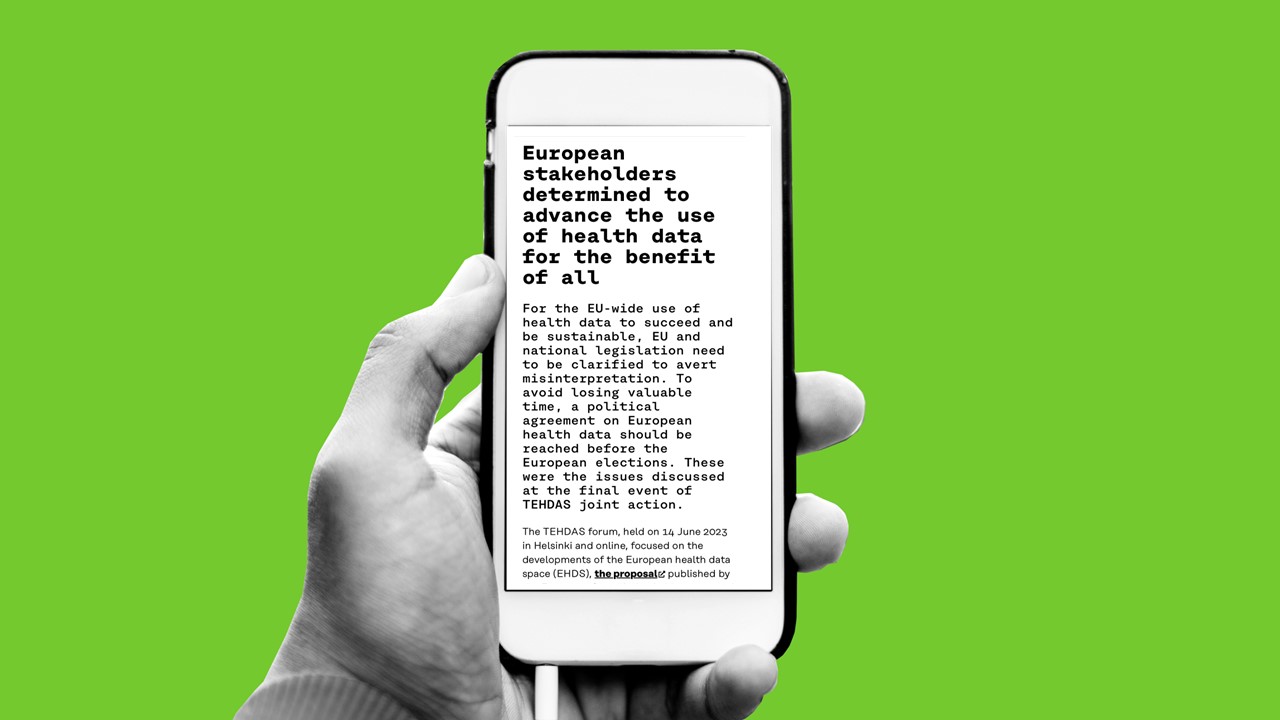The groundwork for the European Health Data Space Data space A set of mutually agreed principles and rules for sharing and exchanging data within or between different sectors. Open term page Data space has been laid by 25 countries in the TEHDAS joint action coordinated by Sitra. The project is now coming to an end and the project parties and numerous other specialists working on the topic came together at the TEHDAS forum on 14 June to discuss the results of the project. Almost 600 participants attended, including about 200 were present in person i in Helsinki.
Health data
Health data
Health data is ‘data concerning health’ means personal data related to the physical or mental health of a person, including the provision of health care services, which reveal information about his or her health status.
Open term page
Health data
plays a crucial role as health care worldwide moves towards a greater emphasis on personalised care. There is no time to lose. Sitra’s President Jyrki Katainen highlighted the timeliness of the Health Data Space:
“This is the right time to influence all the political decision-makers in member states and at European level, so that the Health Data Space and related measures will remain on the Commission’s agenda.”
Member of the European Parliament Sirpa Pietikäinen, who participated in the forum as a panelist, echoed Katainen’s message:
“If political agreement is not found before the elections, we might be looking at years of delay”.
Secure and smart use of data improves everyone’s health
Data must be processed in an absolutely secure way in the European Health Data Space. The Commission’s proposal for a in 2022 already emphasises a secure environment in which data is processed once a data permit has been granted. The TEHDAS project had been outlining the main elements of the European Health Data Space, or architecture, even before the publication of the proposal.
Sustainability was also discussed and has other dimensions besides funding, such as the legal basis and governance, access to quality data, capacity and skills, and trust. Participants in the forum identified trust, clear legislation and governance as the most challenging sustainability issues to address.
Smart data use can improve everyone’s health and emphasise personalised care.
“With data quality and accessibility and building trust we can help all EU Member States to move to personalised health,” said Antonio Estrella, Strategic Futurist.
The work is continuing towards building the European Health Data Space, and negotiations are under way in the Council of the EU and the European Parliament. There are also ongoing projects on the secondary use of health data. The HealthData@EU pilot project is testing the technical infrastructure for the secondary use of health data as presented in the proposal. The Commission representatives also raised the issue of grants for Member States.
This forum was the third and last organised by TEHDAS, the joint action Towards the European Health Data Space. The work will continue and a follow-up joint action is planned to start in 2024.
Read the summary of the TEHDAS forum.
The recording of the TEHDAS Stakeholder forum arranged on 14 June 2023 is available until 3 July 2023.

